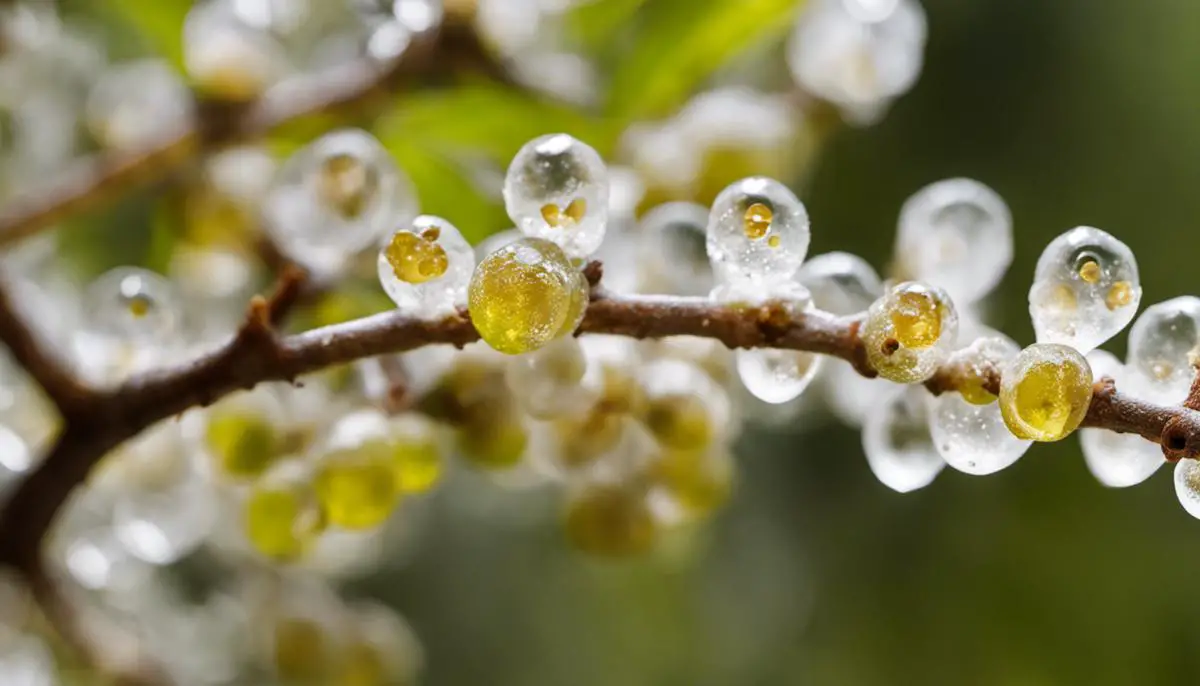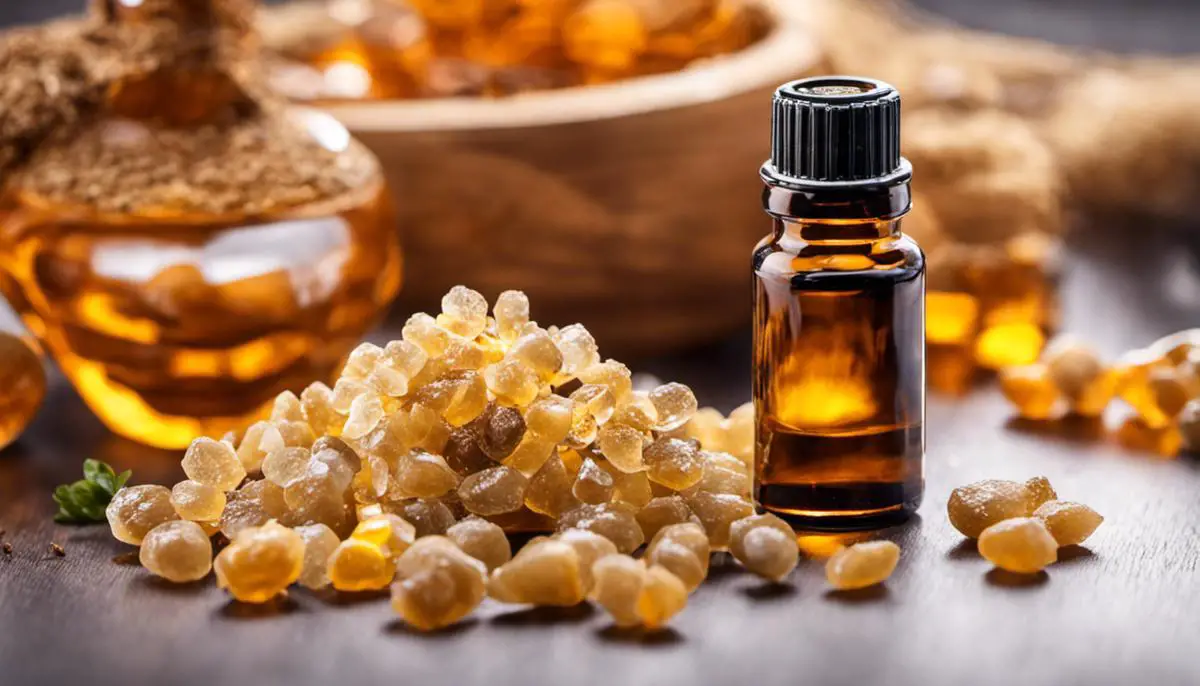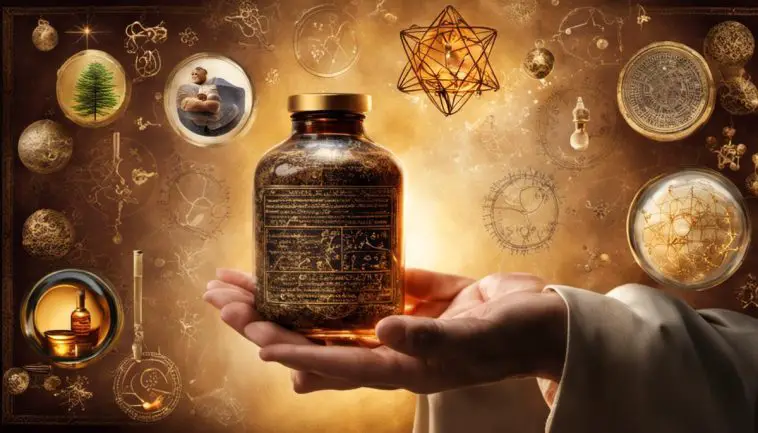Frankincense, a resin widely celebrated in history and tradition, is renowned not only for its aromatic qualities but also for its supposed wellness properties. A native plant species of the Arabian Peninsula and northeast Africa, frankincense has been used for millennia in religious rituals, traditional medicine, and perfumery. But, beyond its familiar role, frankincense is increasingly projected into the limelight for a rather unfamiliar potential – as an agent in mitigating anxiety, among other mental health conditions. This article explores the intricacies of frankincense, its types, origin, unique chemical properties, and its preparation methods, before delving into its application in the sphere of mental health, particularly in helping alleviate anxiety.
Understanding Frankincense and its Properties
Understanding Frankincense and its Origins
Frankincense, referred to as the “King of Oils,” originates from the Boswellia tree, predominantly found in regions of Africa and Arabia. There are several types of Boswellia trees, each producing a unique form of resin which further distinguishes the many kinds of frankincense oils. The most commonly known types include Boswellia Carterii and Boswellia Sacra, which are reputed for their high concentration of beneficial compounds.
Each frankincense variant has unique chemical properties, but all contain a mix of monoterpenes, sesquiterpenes, and ketones. Among these, incensole acetate, a compound in Frankincense, has drawn particular scientific interest due to its potential anti-inflammatory and anxiolytic effects.
Understanding Frankincense: Extraction and Potential Benefits
The world of frankincense begins with a small incision made on the Boswellia tree’s trunk, prompting a milky-white resin to slowly leak out. This resin hardens into what we know as frankincense tears. These tears are meticulously gathered and hand-sorted before undergoing steam distillation to extract the oil.
The use of frankincense for anxiety relief stems from both anecdotal accounts and preliminary research. The suggestion is that frankincense’s aromatic compounds, notably incensole acetate, might have calming effects, as they interact with the brain’s limbic system. To access these potential benefits, people often utilize frankincense oil in aromatherapy, mix it with a carrier oil for topical application, or incorporate it into meditation practices. Despite these encouraging initial signs, further scientific studies are needed to confidently affirm these claims and explore frankincense’s full capabilities.

Frankincense and Mental Health
Universally known as Boswellia or frankincense, this resin has been acclaimed for its potential to enhance overall wellbeing, significantly reducing anxiety symptoms. Centuries of use, a number of scientific studies, and the production of soothing frankincense essential oil all highlight the multipurpose value of the Boswellia tree’s resin. Whether through inhalation or topical use, it has been found to help in alleviating anxiety. A study in the Journal of Ethnopharmacology even proposes that the anti-anxiety effects of frankincense might be tied to its impact on the emotional sector of the brain. The unique scent of frankincense seems to invoke sensations of tranquility and relaxation, valuable traits for managing anxiety on a day-to-day basis.
In terms of usage, frankincense can be diffused using an oil diffuser or applied directly to the skin after being diluted with a carrier oil. It can also be added to bath water for a soothing soak. It’s important to note that recommended doses should not be exceeded, as this can lead to potential side effects such as skin rashes or stomach discomfort. While it’s generally considered safe for most people, frankincense should be used with caution by pregnant women and people with bleeding disorders, since it can influence blood clotting. Furthermore, it’s always crucial to remember that while frankincense could be a great addition to one’s mental health toolkit, it should not replace seeking professional help when dealing with severe anxiety.

With a greater comprehension of what frankincense is and its virtues, it becomes clear how this aromatic resin, which has been a part of human history for thousands of years, could potentially play a role in today’s mental health challenges. Whether by direct inhalation, application on the skin, or consumption as a supplement, frankincense brings potential holistic aid in combatting anxiety, a condition that affects millions. Despite the promising possibilities, it’s imperative to consider safety precautions and consult healthcare professionals before incorporating frankincense in any wellness regimen to manage anxiety. On this journey of understanding frankincense and its potential, we hope to empower readers to make informed decisions regarding holistic anxiety management.




